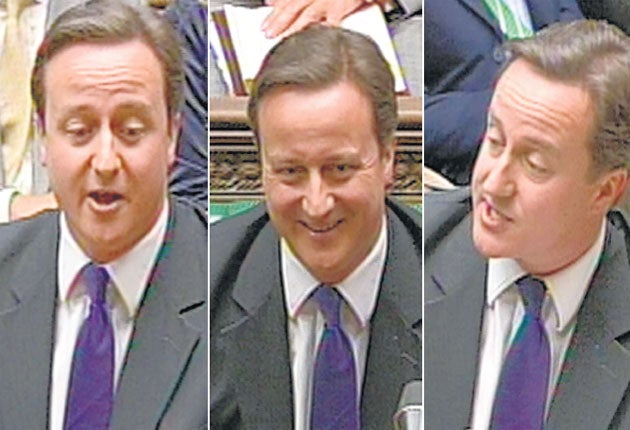Plan to protect anonymity of rape accused watered down

A surprise plan to grant anonymity to rape defendants will be significantly redrawn by the coalition Government after intense criticism of the proposals.
There was anger from campaigners last month when the coalition agreement, drawn up by the Tories and Liberal Democrats, included the pledge to keep the identity of rape suspects secret. It would have reinstated the anonymity rules repealed 12 years ago.
At the time the measure was revealed, Government sources suggested anonymity would only be lifted after a defendant had been through the courts and convicted. But speaking at his first Prime Minister's Questions yesterday, Mr Cameron suggested the new rules may only hide the identity of defendants until they were formally charged.
Women's groups had argued the proposals would stop other rape victims coming forward, setting back plans to improve low conviction rates in rape trials. In a shift that appeared to pave the way for significantly watering down the scope of the anonymity changes, Mr Cameron conceded publicity around court cases "can help bring other people who have been raped forward".
He cited his time on the Commons Home Affairs Committee, when MPs concluded there was a case for protecting the identity of defendants between their arrest and charge in rape cases. "The coalition agreement mentions this issue of anonymity and we will of course be bringing forward proposals which the House can then examine and debate," he said.
"On the issue of anonymity, I sat on the Home Affairs Select Committee that examined this issue. We came to the conclusion that there was a case that between arrest and charge there was a case for anonymity," he added.
Despite welcoming the apparent clarification of the plans, the women's rights campaign group, the Fawcett Society, warned that even smaller reforms would be a step backwards. "Even with this clarification we remain concerned the coalition seems to be singling out a debate on anonymity for the crime of rape – why not other serious crimes? We have yet to see evidence that this would mean greater justice for those accused of or victims of rape," said Ceri Goddard, its chief executive.
"So far their plans seem based on flimsy ideas, little evidence and perhaps not a small degree of lingering sexist stereotypes about women who report rape, not on a real commitment to equal justice for women."
The Prime Minister had been responding to fierce criticism from the acting Labour leader, Harriet Harman, who said the measures would make it even harder for rape victims to get justice. She said: "To single out rape defendants sends a very powerful message to juries in rape cases that the rape victim is not to be believed."
At his first PMQs, which was overshadowed by the news of the Cumbria shootings reaching MPs, Mr Cameron also outlined plans to push through long-awaited reforms to the House of Lords. As he attempted to wrest control of the "progressive" agenda from Labour, he said his coalition would prepare a vote on introducing a partially elected second chamber. Reforms to the Lords were repeatedly promised by Labour, but never delivered.
His pledge for a vote appeared to speed up the coalition's agenda for reform. The agreement between Nick Clegg and Mr Cameron promised to draw up a motion by the end of the year outlining "proposals for a wholly or mainly elected upper chamber on the basis of proportional representation".
"I've always supported a predominantly elected House of Lords. I'm delighted agreement has been reached on the coalition programme. I hope that after the promises of reform, this time we can move towards a predominantly elected second chamber," he said. "There will be a draft motion by December which the House can vote on."
Mr Cameron is expected to face opposition from his own benches on reforming the Lords. Even his statement of support earned murmurs of discontent. "I can already hear what a challenge... it is going to be," he said.
However, Mr Cameron attempted to appease backbenchers by repeating his opposition to the Human Rights Act, in contrast to his Liberal Democrat partners. He said Britain would be "better off" ditching the historic legislation in favour of a British Bill of Rights.
Join our commenting forum
Join thought-provoking conversations, follow other Independent readers and see their replies
Comments
Bookmark popover
Removed from bookmarks